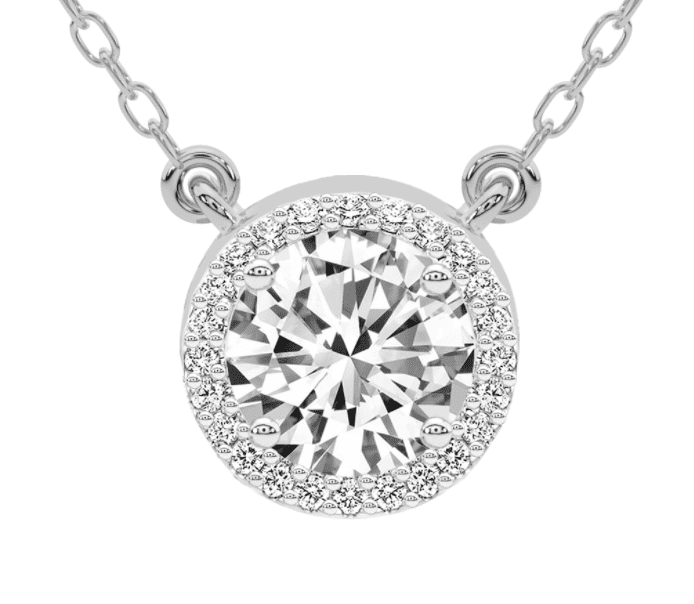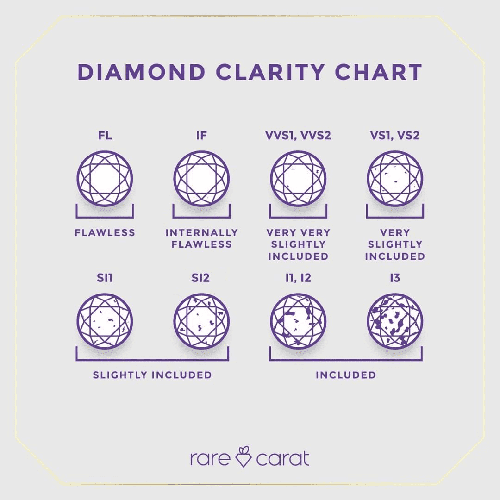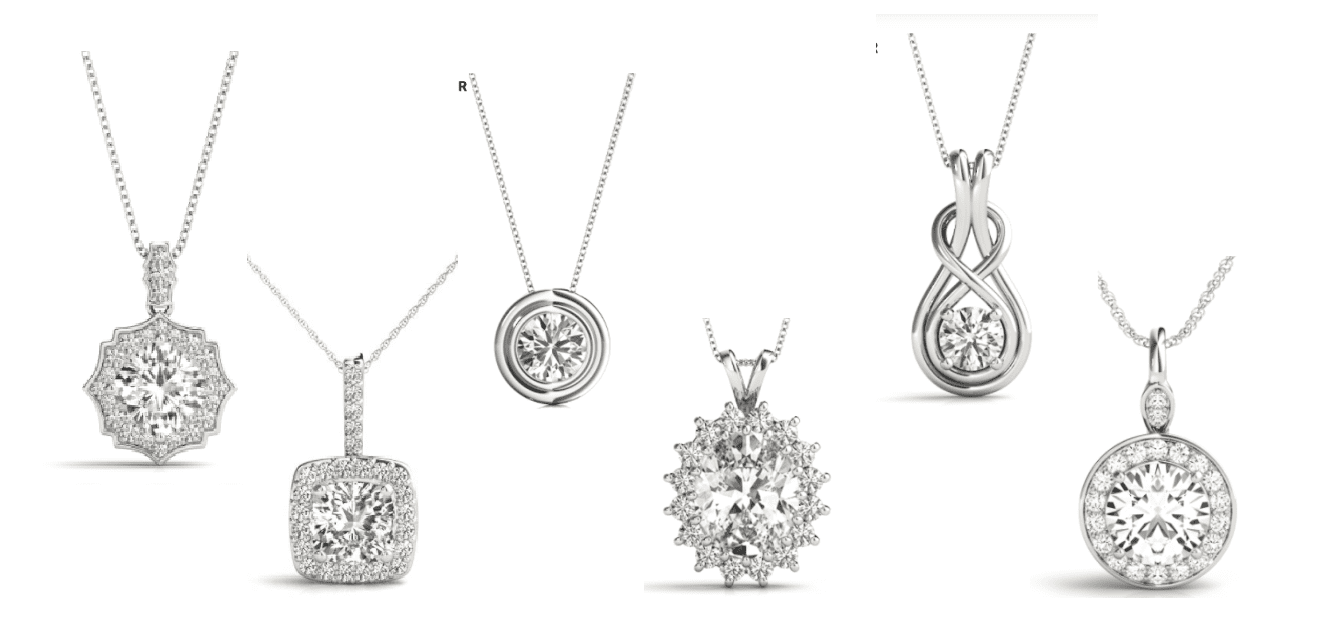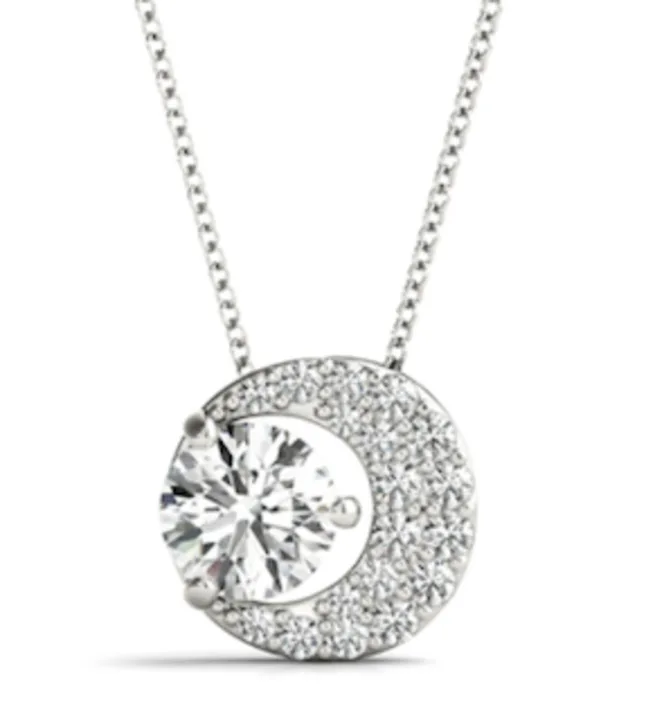What To Look For In Diamond Pendants | Rare Carat
A diamond pendant is one of the most versatile jewelry items you will ever own. With options that are suitable for any age, gender, body shape, or budget, pendants worn as necklaces can be dressed up for black-tie events as easily as they can be worn with jeans and sneakers at the grocery store. Pendants sit under your face, thus, people will have a much better and unencumbered view of them than they would other jewelry items like earrings or rings. You don’t need to stop a conversation and hold up your hand for a finite amount of time to show off your pendant, it sits almost at eye-level and is mostly stationary for all to see. As pendants are so visible, it is definitely worth taking your time to decide exactly what sort of stone(s) and design you want.
Why Are Delicate Shapes are Great for Pendants

To begin, let’s say that you are looking for a single stone pendant. Round brilliant and princess cut stones remain popular choices for pendants, but you can select any cut that speaks to you. For instance, heart-shapes are a romantic option and pears can be quite elegant. What is great about pendants, when compared to rings, is that damage to the diamond is unlikely. You can wear stones with points, like princess or pear shapes, and not worry about chipping those delicate points. This means that you are free to choose creative settings which don’t necessarily cover the stone’s angular points.
What Carat Weight Should I choose for a Pendant
The stone’s color grade is of the upmost importance as people are going to get such a good look at your diamond. Depending on the cut of the stone, you may start to see some softness of color with I and J diamonds. Stones that are graded Faint and lower will feature a markedly warm, yellow glow. While stones with the least amount of color generally command the highest prices, you should purchase whatever color appeals most to you.
What Clarity Grade Should I choose for a Pendant

If you decide that you want a stone larger than 1 carat, the clarity of the diamond is another factor that should be paramount. The keyword that you should be looking for in the description of diamonds is “eye-clean.” This means that the stone has some internal inclusions, but they don’t appear without magnification. Usually, this translates to stones that have a clarity grade of SI1 or better. For lower clarity grades, as long as you don’t see any bold dark inclusions or a cloudiness that might distract from the beauty of the stone, people seeing the stone on you from several feet away will not perceive them either.
What Style of Pendant Should I Get

Perhaps you are looking for something with a bit more flash and are seeking a pendant with multiple diamonds. Popular multi-stone pendants feature religious icons such as crosses or stars of David. There are an abundance of secular-themed pendants on the market as well such as astrological patterns, romantic motifs, or customized pieces which spell out names. If this is what you are looking for, the matching of the color of the stones is vital! You want to enjoy the effect of the design without the distraction of poorly matched diamonds!
What Sort of Chain Should I Get for my Pendant
A final thought, while you don’t really need to worry about damage to your diamond during wear, chain selection becomes an important consideration when it comes to durability. The most robust chains are made from individual, interwoven, links. This allows them to be both strong and flexible. Examples of linked chains are curb, rope, and box. The characteristics of different metals may also factor into your choice. Silver is a beautiful and affordable white metal possibility. However, it will tarnish if not worn or polished regularly. When it comes to gold, remember that a 14 karat gold chain will be stronger than an identical chain made from 18 karat gold because high karat gold is relatively soft. Platinum is a great choice if you have a metal allergy. Remember, the longer the chain, the more likely that it is going to snag on something.
If you need help maximizing your dollar or building a pendant that is right for you or your special person, a Rare Carat Gemologist will be a perfect person to ask. Just let us know!


Diamond Pendant FAQs